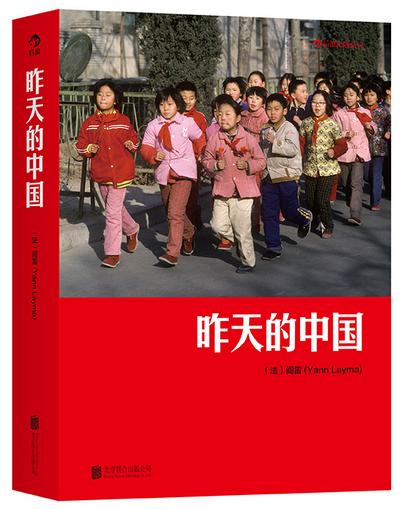French photographer records yesterday's China
 0 Comment(s)
0 Comment(s) Print
Print E-mail Xinhua, March 10, 2015
E-mail Xinhua, March 10, 2015
It was a long, dark, snowy winter's night in 1989. Two street lights sway in the darkness. Yann Layma was behind the wheel of a jeep in the remote mountains of the southwest province of Guizhou.
 |
|
Yann Layma's book "Yesterday's China" |
Suddenly, the car ground to a halt and Yann, along with his two companions, had no choice but to walk over 10 kilometers to reach the ethnic minority community he was going to photograph.
"We did not have enough clothes, so we put newspapers inside our thin jackets to keep warm," Yann said in pidgin Chinese.
However, they fell through an ice hole. "We were so cold and on the edge of death," Yann said. "But the villagers dared not help us as China was at the very early beginning of opening-up," Yann explained. Foreigners, especially in the more under-developed Guizhou, were still a rare sight.
"In their eyes, I was a ghost." Yann said. Finally a girl and her father offered them help. They gave Yann alcohol to warm the body and emptied a bed for his rest.
This is just one of Yann's stories that span 30 years in China, during which he walked across most of the country.
In 1984, Yann was commissioned to take photographs for then French president Francois Mitterand in the Elysee Palace, Paris, France, for one year. During this time, Francois recommended that Yann read Confucius, the famous ideologist and philosopher.
Through his reading, Yann fell in love with the far east country.
The inspiration for moving to China came to him in a dream: "I dreamed of taking photographs in China."
It was to be his psychiatrist that suggested he follow his dream and he gave him a camera.
After studying Chinese in Paris for one year, He went to Taiwan and was given the name "Yan Lei" (thunder in hell).
He moved to Beijing in 1985.
"When I first arrived, there was no expressway and the roads were full of bicycles."
"The people wore grey and there was not much commercial industry," he said. "But it was pure like water."
"It is difficult for young people today to understand what Beijing was like as China has seen remarkable development over the past few decades," Yann said.
In his words, China's beauty not only exists in colorful ethnic minority regions and grand landscapes, but can also could be found in common daily life.
Some of his favorite images portray old women. "They all had bound feet, a practice that crippled women both physically and spiritually in feudal society," Yann explained. "These images are snapshots of real life that reflects real history."
His photos range from young people's underground disco party to the operation of China's first stock exchange.
Even though his works seldom touch on politics, Yann said he had been interrogated by the policemen when holding a camera in the street in 1980s.
"They would asked me what I was doing and what I photographing," Yann said. "But I had not broken any rules."
In the 1980s, personal relationships with foreigners were rare in China. "Anyone who came into contact with me had to report and register with the higher authorities," Yann told.
Yann can now walk and ride without any special attention from others across the country.
"It was truly a huge progress for China, which marks its more inclusiveness," Yann said. However, he still witnessed the traditional cultures' fading during the country's rising.
"I returned to the village in Guizhou province in 1998," he said. "But I could not find the conventional life styles such as diversified minority costumes."
To preserve his memory of China's 1980s to 1990s, he has published five books of photo collection, including newly launched "Yesterday's China" last month.
The selected photos in the book were captured from 1985 to 1995. "People prefer to leaf through the pictures of juvenile and youth period," the book's publisher Na Risong noted, "since they carry our abundant memory of past time."
Yann Layma's story with China has not stopped. In 2005, Yann Layma was granted as the Chevalier de la Legion d'Honneur due to his great contribution to China-France culture exchanges.
Over three years ago, he met his current wife online. And now, they split their time between Beijing and Tours, France, with their 10-month child. Yann spends a lot more time selling the works of other Chinese photographers abroad.
Some people, in China and France, doubt his transition from art to commerce. "I just hope to live better though I am turning to be a businessman," he responded.






Go to Forum >>0 Comment(s)